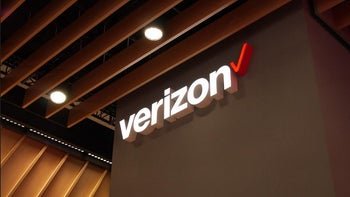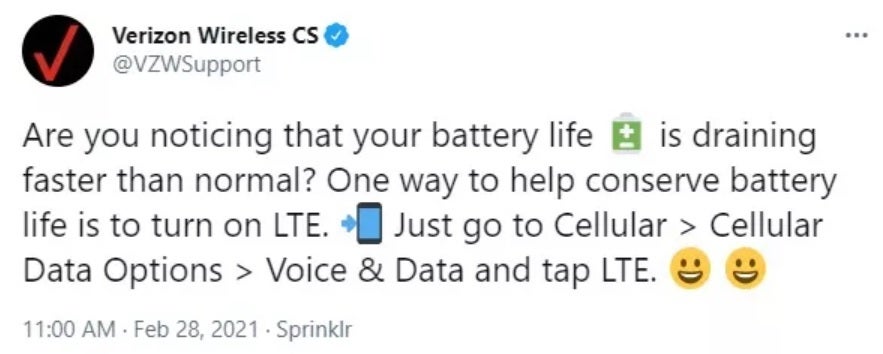Verizon says that if you're having this issue, turn off 5G

Verizon has been heavily promoting its 5G network, even running a new television campaign starring actor Samuel Jackson. Still, today on the Verizon Support Twitter feed, the nation's largest carrier tweeted that subscribers having battery life issues should turn on LTE. In other words, Verizon is saying to turn of 5G if you need to conserve battery life. While the tweet is no longer available, The Verge posted a screen grab of the tweet.
The carrier wrote in the tweet, "Are you noticing that your battery life is draining faster than normal? One way to conserve battery life is to turn on LTE. Just go to Cellular > Cellular Data Options > Voice & Data and tap LTE." Note how Verizon doesn't actually say to turn off 5G, but by turning on LTE you would be effectively shutting 5G off. Ironically, if you're using Verizon's nationwide 5G network instead of its Ultra Wideband service, you might find your download data speed to be faster with LTE enabled. That's because the Dynamic Spectrum Sharing (which allows 4G LTE and 5G to share spectrum) connects those outside of Verizon's high band mmWave 5G service to low-band 5G. And low-band 5G can deliver download data speeds slower than 4G LTE.

Verizon essentially tells subscribers to turn off 5G if their battery is draining too quickly
This isn't something that is Verizon's problem alone. Low-band 5G might travel longer distances and penetrate structures better, but it hardly delivers the fast data speeds consumers expect from 5G. That is why there is such demand for mid-band spectrum and explains why a record-breaking $81 billion was recently received in bids for C-band spectrum that was auctioned off by the FCC. Verizon spent over $45 billion for 3,500 licenses and AT&T paid over $23 billion for 1,600 licenses. T-Mobile spent only $9 billion for 162 licenses, but that's because the company picked up plenty of mid-band 2.5GHz spectrum with its $26.5 billion acquisition of Sprint.
The mid-band spectrum won at auction includes airwaves in the 3.7GHz-3.98GHz range and it won't be available in many instances until later this year. That means that in some areas, Verizon and AT&T subscribers might continue to experience disappointing 5G speeds for the rest of the year. T-Mobile's acquisition of Sprint has already given the nation's second largest carrier a head start in the use of mid-band airwaves for 5G.










Things that are NOT allowed: